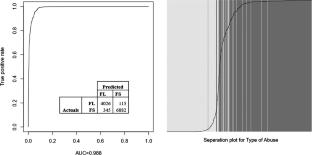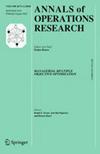Disentangling human trafficking types and the identification of pathways to forced labor and sex: an explainable analytics approach
Abstract
Terms such as human trafficking and modern-day slavery are ephemeral but reflect manifestations of oppression, servitude, and captivity that perpetually have threatened the basic right of all humans. Operations research and analytical tools offering practical wisdom have paid scant attention to this overarching problem. Motivated by this lacuna, this study considers two of the most prevalent categories of human trafficking: forced labor and forced sex. Using one of the largest available datasets due to Counter-Trafficking Data Collective (CTDC), we examine patterns related to forced sex and forced labor. Our study uses a two-phase approach focusing on explainability: Phase 1 involves logistic regression (LR) segueing to association rules analysis and Phase 2 employs Bayesian Belief Networks (BBNs) to uncover intricate pathways leading to human trafficking. This combined approach provides a comprehensive understanding of the factors contributing to human trafficking, effectively addressing the limitations of conventional methods. We confirm and challenge some of the key findings in the extant literature and call for better prevention strategies. Our study goes beyond the pretext of analytics usage by prescribing how to incorporate our results in combating human trafficking.


 求助内容:
求助内容: 应助结果提醒方式:
应助结果提醒方式:


